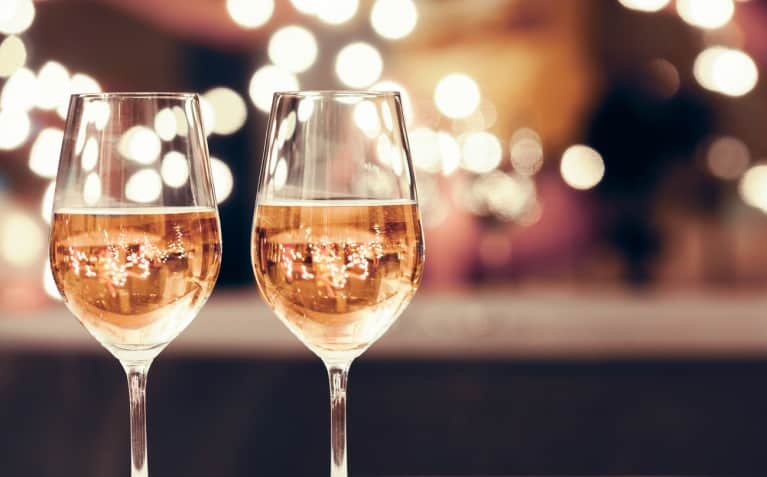With the holidays around the corner health-conscious people around the world pick their poison for the night ahead—or vow to just pop open a bottle of kombucha come midnight—thoughts of “What alcohols are gluten-free?” and “How can I drink to prevent a hangover?” fill the air. Well, we’ve got answers to those questions, but we want to address one more too: How can you drink in a way that’s easier on the planet?
Alcohol Can Be Eco-Friendly!
1. Beer:
While the process to produce a gallon of beer isn’t exactly easy on the environment, it requires way less water than wine and liquor—typically around 296 gallons (compared to 872 gallons for the same amount of wine). Plus, these days many craft breweries, which by definition are small operations that don’t put additives like rice or corn into their brews, are going above and beyond to clean up their production practices as much as possible. See if there are any near you that are sourcing organic ingredients from local farms or using renewable energy to power its facilities. If you can’t find any, at least buy your beer in cans, since they tend to be easier to ship and recycle.
2. Wine:

When it comes to wines, buying local is key. Instead of indulging in that Malbec from Australia, consider trying one out from a vineyard that’s closer to home. You can also decrease your bottle’s carbon footprint by forgoing the bottle altogether. Yep, boxed wine is usually the more eco-friendly choice, since its packaging is lighter and you get so much more of it with your purchase.
Biodynamic wines are also friendlier on the environment since they’re organic and sustainably produced by definition. Biodynamic vintners will approach farming holistically, using natural processes to tend to their soil (read: zero chemicals).
3. Spirits:
Spirits like rum, gin, and vodka are all pretty resource-intensive to make. They require lots of raw materials like grains such as corn, rye, or wheat, and it typically takes a good amount of energy to turn these into the finished product. Plus, depending on where it’s made, liquor can leave a lot of waste and chemicals behind. There are, however, a handful of alcohol brands working to reduce their impact as much as possible.
Greensand Ridge Distillery in the United Kingdom, for example, operates on 100 percent renewable energy, only works with ingredients that can be found in nature, and doesn’t use any plastic to make its bottles. “We also try to have a positive impact on our environment and local community by using, for many of our spirits, only surplus produce from regional farmers and food producers,” explains founder Will Edge. Or take Don Q Rum, a Puerto Rican purveyor. When fermenting molasses for their rums, they capture the CO2 it emits, store it, and sell it to local soft drink producers instead of just letting it go into the atmosphere. Other companies like 360 Vodka plant trees around their facilities in an effort to offset emissions.
If you’re in the market for liquor, look for sustainable commitments like these, and try to track down a bottle that didn’t travel halfway around the world to get to you.
4. Everything else:
Flavored liquors and specialty drinks—basically, anything that smells unnaturally sweet or fruity—are usually the worst in terms of environmental impact, since they’re basically just liquors with more ingredients (usually sugar) packed into them. Do yourself a favor and keep it simple this holiday season, and add flavor with mixers. The planet, and your body, will thank you.

